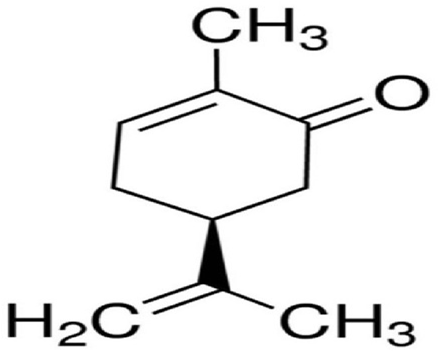Abstract
The simultaneous control over multiple hallmarks is an effective and viable strategy in the treatment of life-threatening diseases like cancer. This work plan was designed to investigate the outcome of D-carvone on viability, movement, and reactive oxygen species production, level of mitochondrial membrane potential, apoptosis and cell cycle events against A431 skin cancer cell lines. Cells were treated with D-carvone on A431 cell line in a dosage reliant approach; the cytotoxicity of the drug was observed and confirmed as IC50 values of the D-carvone to investigate further parameters. We examined the efficiency of D-carvone on apoptosis induction by dual staining method, cell cycle distribution using flow cytometric analysis, activation of oxidative stress were evaluated by measuring ROS and MMP. And the migration efficiency of cancer cells was determined by transwell migration assay. The statistical analysis of all data was analyzed using one-way analysis of variance (ANOVA) followed by post hoc test. In most results were observed, strong cytotoxic activity of D-carvone (30 µg) had towards- A431 (human epidermoid carcinoma cells) in the MTT analysis. Further, it shows that the D-carvone 25, 30 and 35 µg/ml concentration capable of inducing apoptosis in A431 cells in a dose-responsive approach through the generation of reactive oxygen species, as well as leading to loss of mitochondrial membrane potential. Moreover, we observed cell cycle arrest in G0/G1 phase at an application of D-carvone 35 µg/ml and movement of cancer cells significantly reduced in D-carvone 30 µg treated groups in dose reliant manner. Overall this study concludes that D-carvone is a potential antiproliferative as well as anti-cancer agent and may be developed into a lead to treating human skin cancer.
Full text article
Generated from XML file
Authors
Gopalakrishnan Thamizharasi, & Ganapathy Sindhu. (2023). D-carvone inhibits growth, migration, cell cycle at G0/G1 phase and induces apoptosis in A431 cells by disrupting mitochondrial membrane potential. International Journal of Research in Pharmaceutical Sciences, 9(4), 1345–1355. Retrieved from https://ijrps.com/home/article/view/4472
Copyright (c) 2018 International Journal of Research in Pharmaceutical Sciences

This work is licensed under a Creative Commons Attribution-NonCommercial-NoDerivatives 4.0 International License.

